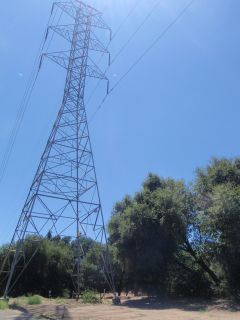A review of pollinator conservation and management on infrastructure supporting rights-of-way
DOI:
https://doi.org/10.26786/1920-7603(2012)5Abstract
Early successional landscapes along or adjacent to infrastructure installations have been highlighted as potential pollinator conservation zones that provide environmental benefits and ameliorate some of the negative impacts of wildland conversion. Habitat development and management initiatives in this field are active, but vetted support for particular techniques and strategies is lacking and technical information is diffuse. We reviewed the current scientific and technical literature relating to right-of-way and roadside management to produce an overview. Surveys and comparative studies dominate the literature, with limited manipulative experimentation and limited tests of best management practices. Local floristic diversity is shown to be a determinant of butterfly, bee, and fly patterns but data is almost entirely lacking on vertebrate pollinators. The degree to which these linear landscape corridors can promote movement and connectivity is also not well addressed, yet there is a focus in the conservation community to promote migrations and movement. Contrasting results are reported for the impact of disturbance regimes associated with management (mowing and herbicide use), and there is also only minimal attention given to the potential negative impacts that are experienced by pollinators on rights-of-way. Even with the limited literary accounts of pollinator management in these landscapes we believe infrastructure landscapes can provide substantial benefits to pollinator species and ecosystem services and encourage further management-based investigations.
Please find supplementary files to this article in the menu on the left side.

Downloads
Additional Files
Published
How to Cite
Issue
Section
License
Copyright (c) 2012 Victoria Agatha Wojcik, Stephen Buchmann

This work is licensed under a Creative Commons Attribution 4.0 International License.
JPE is an open access journal which means that all content is freely available without charge to the user or his/her institution.
Authors who publish with this journal agree to the following terms:
1) Authors retain copyright and grant the journal right of first publication with the work simultaneously licensed under a Creative Commons Attribution License that allows others to share the work with an acknowledgement of the work's authorship and initial publication in this journal.
2) Authors are able to enter into separate, additional contractual arrangements for the non-exclusive distribution of the journal's published version of the work (e.g., post it to an institutional repository or publish it in a book), with an acknowledgement of its initial publication in this journal.
3) Authors are permitted and encouraged to post their work online (e.g., in institutional repositories or on their website) prior to and during the submission process, as it can lead to productive exchanges, as well as earlier and greater citation of published work (See The Effect of Open Access).
To assure a broader targeted audience, content will be included into databases (such as EBSCO) and directories (such as DOAJ).











